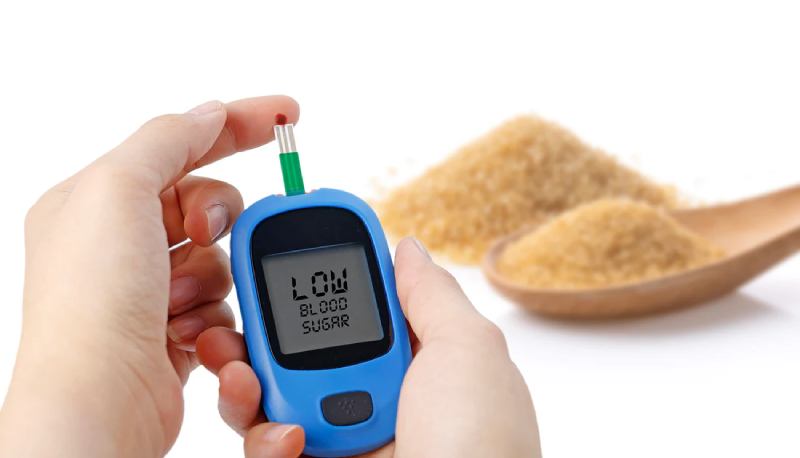Living with diabetes can feel overwhelming, especially when it comes to managing blood sugar levels. Constant monitoring, dietary adjustments, and medication considerations can create a complex web of information. But fear not! Blood sugar control can be simplified with a clear understanding and practical strategies. This comprehensive guide empowers you, the diabetic warrior, with effective tips to navigate your journey towards optimal blood sugar management.
Understanding Blood Sugar: The Core of Control
Blood sugar, also known as glucose, is the fuel that keeps your body running. It comes from the food you eat and gets transported to your cells through the bloodstream by insulin, a hormone produced by your pancreas. In type 1 diabetes, the body doesn’t produce enough insulin, while in type 2 diabetes, the body either doesn’t produce enough or becomes resistant to insulin’s effects. This leads to high blood sugar levels, which, if left uncontrolled, can cause serious health complications.
The Importance of Blood Sugar Control
Maintaining healthy blood sugar levels is crucial for preventing long-term complications of diabetes, such as:
- Heart disease and stroke: Chronically high blood sugar can damage blood vessels and increase your risk of heart attack and stroke.
- Nerve damage (neuropathy): This can lead to pain, numbness, tingling, and weakness, especially in the feet and hands.
- Kidney disease (nephropathy): High blood sugar can damage the filters in your kidneys, leading to kidney failure.
- Eye problems (retinopathy): This can cause blurred vision, blindness, and other eye issues.
- Foot problems: Poor circulation and nerve damage in the feet can increase the risk of infections and ulcers, potentially leading to amputation.
Effective Blood Sugar Control Strategies: Your Action Plan
By incorporating the following tips into your daily routine, you can effectively manage your blood sugar and pave the way for a healthier you:
1. Embrace a Balanced Diet:
- Food is Fuel: Think of food as the fuel that regulates your blood sugar engine. Choose a balanced diet rich in whole grains, fruits, vegetables, and lean protein. These foods provide sustained energy and minimize blood sugar spikes.
- Fiber is Your Friend: Fiber slows down the absorption of sugar into the bloodstream, preventing sharp rises in blood sugar levels. Aim for high-fiber foods like whole grains, beans, lentils, and vegetables.
- Limit Refined Carbs and Sugars: Refined carbohydrates and added sugars are quickly absorbed, causing blood sugar spikes. Limit sugary drinks, white bread, pastries, and processed foods.
- Portion Control is Key: Pay attention to serving sizes. Use smaller plates and bowls to avoid overeating and manage your carbohydrate intake.
- Read Food Labels: Become a label detective! Understanding the carbohydrate content of foods helps you make informed choices.
2. Move Your Body Regularly:
- Exercise is a Powerhouse: Physical activity is a fantastic tool for blood sugar control. Regular exercise helps your body utilize insulin more effectively and lowers blood sugar levels. Aim for at least 30 minutes of moderate-intensity exercise most days of the week. Brisk walking, swimming, cycling, and dancing are all excellent options.
- Find Activities You Enjoy: Choose activities you genuinely enjoy to make exercise sustainable. You’re more likely to stick with a routine you find fun.
- Start Small, Increase Gradually: If you’re new to exercise, begin with short sessions and gradually increase the duration and intensity over time.
3. The Power of Sleep:
- Sleep Deprivation Disrupts Blood Sugar: When you don’t get enough sleep, your body produces stress hormones that can increase blood sugar levels. Aim for 7-8 hours of quality sleep each night.
- Develop a Relaxing Bedtime Routine: Establish a relaxing bedtime routine to wind down and prepare for sleep. Avoid screen time close to bedtime, and create a sleep-conducive environment.
4. Manage Stress Effectively:
- Chronic Stress Raises Blood Sugar: Chronic stress can elevate blood sugar levels. Find healthy ways to manage stress, such as yoga, meditation, deep breathing exercises, or spending time in nature.
- Identify Your Stressors: Recognizing your stress triggers is crucial. Do you get stressed during work deadlines? Family conflicts? Once you know your triggers, you can develop coping mechanisms.
5. Monitor Your Blood Sugar Regularly:
- Knowledge is Power: Regularly monitoring your blood sugar levels provides valuable insights into how your body reacts to food, exercise, and medications. This empowers you to make informed decisions about your diabetes management plan.
- Work with Your Doctor: Discuss how often you should test your blood sugar based on your individual needs and diabetes management plan.
- Stay Motivated (Continued): Celebrate your successes! Consistent blood sugar monitoring can be tedious, so acknowledge your progress and reward yourself for staying on track.
6. Medication Management:
- Medications Play a Role: For some diabetics, medications like insulin or oral medications are necessary to manage blood sugar levels.
- Take Medications as Prescribed: Adhering to your doctor’s medication schedule is crucial for optimal blood sugar control. Don’t skip or adjust your medications without consulting your doctor.
- Understand Your Medications: Ask your doctor about your medications, their potential side effects, and how they work to manage your blood sugar.
7. Build a Strong Support System:
- You’re Not Alone: Surround yourself with a supportive network of family, friends, and healthcare professionals. Talking to others with diabetes can provide valuable insights and encouragement.
- Don’t Be Afraid to Ask for Help: Diabetes management can be challenging. Don’t hesitate to seek help from your doctor, a diabetes educator, or a registered dietitian. They can provide personalized guidance and support.
8. Be Your Own Advocate:
- Empower Yourself: Actively participate in your diabetes care. Learn about diabetes, ask questions, and express your concerns to your healthcare team. You are the expert on your own body.
- Stay Up-to-Date: Research the latest advancements in diabetes management. There are ongoing developments in medications, technologies, and treatment approaches.
9. Celebrate the Small Victories:
- Focus on Progress: Managing diabetes is a marathon, not a sprint. Celebrate every small victory, whether it’s a healthy meal choice, a consistent exercise routine, or a good blood sugar reading.
- Maintain a Positive Attitude: A positive attitude can significantly impact your diabetes management. Focus on the progress you’re making and the healthier you that you’re becoming.
10. Schedule Regular Checkups:
- Prevention is Key: Regular checkups with your doctor are crucial for monitoring your overall health and identifying any potential complications. These visits also allow you to discuss your diabetes management plan and make adjustments as needed.
- Open Communication: Maintain open communication with your doctor. Discuss any concerns you have, and ask questions about your medications, blood sugar goals, and any new developments in diabetes management.
Living Well with Diabetes
Remember, managing diabetes is a lifelong journey. By incorporating these effective tips into your daily routine, you can achieve optimal blood sugar control and live a healthy, fulfilling life. Embrace a balanced diet, prioritize physical activity, manage stress effectively, and don’t hesitate to seek support from your healthcare team. You are not alone in this journey – empower yourself with knowledge, celebrate your progress, and live well with diabetes!

 Diabetology2 weeks ago
Diabetology2 weeks ago
 Diabetology2 weeks ago
Diabetology2 weeks ago
 Diabetology1 week ago
Diabetology1 week ago
 Diabetology2 days ago
Diabetology2 days ago











